Engaging students in deep and meaningful learning is critical to their success in today’s constantly changing world. One way to make connections with students is by asking quality questions—the kinds of questions that capture their attention and cause them to really think and “go deep.”
One of the leading experts on questioning is our own Jackie Walsh who (with co-author Beth Sattes) has written several books on questioning, the most recent being Quality Questioning: Research-Based Practice to Engage Every Learner.
To ensure that more Alabama teachers gain access to professional learning about quality questioning, the Alabama Best Practices Center has (so far) featured five institutes across the state on the topic, all led by Dr. Walsh.
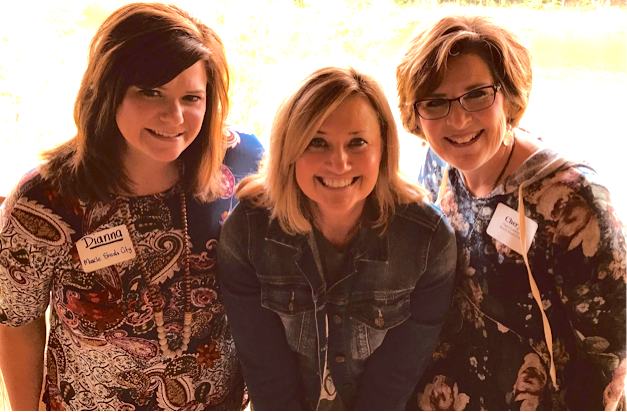 One of our most recent institutes was in Muscle Shoals City Schools this past June. Three of their Instructional Partners—all of whom work with elementary teachers—have captured the results of their schools’ involvement in the Quality Questioning Institute and the extra impact teachers can have when they use advanced questioning strategies with their students. Over the next three days, we’ll feature reports from (left to right) IP’s Dianna Ritter, Sandy Armstrong, and Cheryl Lockhart.
One of our most recent institutes was in Muscle Shoals City Schools this past June. Three of their Instructional Partners—all of whom work with elementary teachers—have captured the results of their schools’ involvement in the Quality Questioning Institute and the extra impact teachers can have when they use advanced questioning strategies with their students. Over the next three days, we’ll feature reports from (left to right) IP’s Dianna Ritter, Sandy Armstrong, and Cheryl Lockhart.
If you’d like to learn more about future institutes, please contact Emily Strickland at [email protected]. — Cathy Gassenheimer
By Sandy Armstrong
Instructional Partner
Howell Graves Preschool
Are students as young as five ready to learn how to be great questioners? Absolutely.
Howell Graves Preschool in Muscle Shoals includes 12 Kindergarten classes and one Pre-First Grade class. Eight teachers from Howell Graves attended ABPC’s Quality Questioning Institute last June. This institute was our school’s first experience with Quality Questioning.
During the conference the teachers were enlightened about the practice of providing each of our young learners with the opportunity to participate in class discussions using engaging questioning strategies.
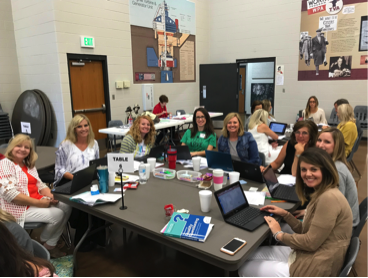
Throughout the conference our teachers started planning how we would implement consistent schoolwide QQ student signals. We learned that in many classrooms with older students a variety of paddle signals are frequently used to help students signal their level of understanding. We decided that using “hand signals only” would work best with our classes of pre- and beginning readers. Our teachers felt these could be quickly implemented during their hands-on lessons.
The conference also provided a time for teachers to begin planning quality questions and implementation strategies for the coming the school year. These early discussions mainly focused on building the culture needed to promote quality questions within the classroom.
As the teachers started planning they used the 6Ps Framework for Quality Questioning described by Jackie Walsh and Beth Sattes in their book Quality Questioning: Research-Based Practice to Engage Every Learner (Corwin, 2017). This framework gave them the guidance and focus to start planning. As a group, they decided to implement questions in the areas of close reading and calendar/math time for the beginning of the year.
Our First Steps Toward Implementation
The first step in implementation was mainly reinforcing students to not raise their hand for attention but to use other signaling strategies, such as holding a thumb up on their chest. After this signal was mastered, students started using the signal for “I agree.” After a few weeks of using these two signals, Think Time (analyze and reflect before answering) was gradually implemented into the discussion. The last signal that was implemented into the discussion was “I disagree.”
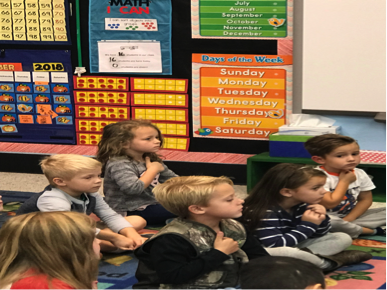
This process has been successful for our classes during the first few months of kindergarten. The strategies were reinforced through simple questions appropriate for this age level in the areas of close reading and calendar/math time.
The teachers who participated in the Quality Questioning Institute formed a PLC group for the school year. This group met at the end of October to reflect on the strategies implemented in the first few months of kindergarten.
These teachers also participated in the ongoing QQ discussion at ABPC’s learning space on the Canvas platform. These discussions have served as an engaging resource, with Jackie Walsh and teachers from other schools responding and sharing ideas from their own work. In order to promote greater awareness of the QQ strategies throughout our school, quality questioning was an option for teachers to observe during our October Observe Me Day at Howell Graves.
In this video, you can see teacher Melanie Hester implementing Quality Questioning strategies during Calendar/Math Time in her kindergarten classroom.
Reflection and Goals for the Rest of the Year
As we move forward into the rest of the school year our main goals are to sustain and refine the procedures that have been implemented in the first few months of school. Teachers would like to begin to introduce students to other QQ stem responses such as “I would like to add” and “I respectfully disagree.” These statements will further enrich the discussion within our conversations. We would also like to start using Think Time 2 (the speaker reflects on what they’ve said and adds to or clarifies it) with our students.
Another goal would be to implement higher order thinking questions as our students begin to master the procedures of quality questioning. Through our involvement in our PLC and Canvas Discussions we hope to intentionally plan with DOK and other resources for higher level questioning. Another excellent resource is the chart “Relationships Between Purposes of Questions and DOK Levels” from the Quality Questioning book.
We are mainly focusing on creating this mindset for our students to authentically apply in their everyday lives. In this video, Melanie Hester, Amy Morris and Kayla Passarella reflect on our beginning of the year implementation of quality questioning and discuss goals for the rest of the year for quality questioning.
ALSO SEE:
Quality Questioning in Muscle Shoals: Highland Park and Webster Elementary
Quality Questioning in Muscle Shoals: McBride Elementary
Sandy Armstrong is the Instructional Partner at Howell Graves Preschool in Muscle Shoals, Alabama. She is in her fifth year as Instructional Partner. She has 29 years of experience in elementary education (kindergarten and first grade) in both Alabama and Georgia school systems. Sandy is a graduate of the University of North Alabama and Auburn University.
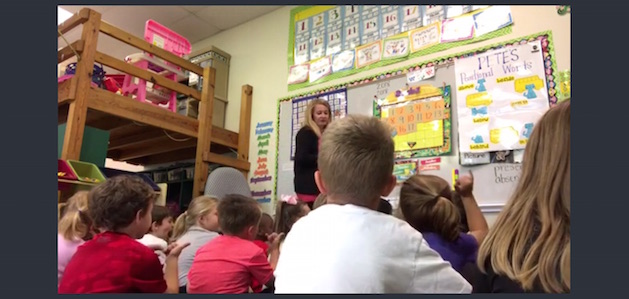
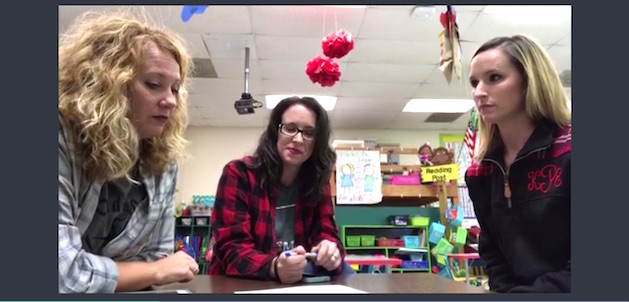

Sandy, I am truly inspired as I watch the young learners adopt speaking, listening, and questioning behaviors that will serve as a strong foundation for their learning to learn behaviors. I loved getting a glimpse inside of one classroom–such proof that K students CAN learn these strategies! The videotaped reflection of three teachers engaged in sharing is also very powerful. I am reinforced and gratified by the results y’all are producing as you partner with one another and with your students to change their way of thinking about their role as learners. Thank you for sharing! Jackie